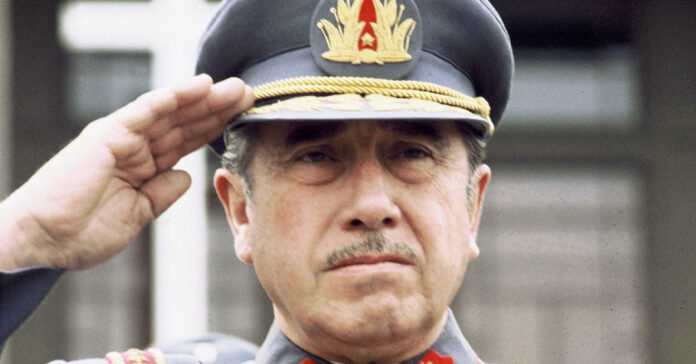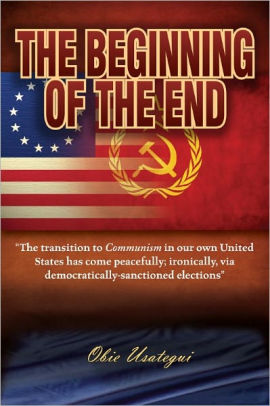Facebook is Trying to Censor Us
Don't let Facebook determine what you are allowed to see. Subscribe to our newsletter to get notified via email whenever we release new articles. Click here to subscribe.
A menudo sorprende a los extranjeros visitan Chile descubrir que el general Augusto Pinochet todavía tiene partidarios aquí. Fuera de Chile, es casi universalmente vilipendiado, recordado como un dictador despiadado cuyo régimen militar mató a más de 3.000 opositores políticos, torturó a muchos más y forzó el exilio de miles. Evelyn, candidata de la derecha en las elecciones presidenciales de noviembre, dijo este mes que en septiembre de 1973, “la inmensa mayoría” de los chilenos querían el fin del gobierno de Allende. Las razones de esta animosidad y de la tormenta económica de la época todavía son objeto de acalorados debates. La derecha dice que la administración de Allende era incompetente. La izquierda dice que el poderoso y conservador lobby empresarial, apoyado por una financiación encubierta de Estados Unidos, debilitó al gobierno. Fue con este telón de fondo que el golpe de Estado tuvo lugar.
ÉXITO ECONÓMICO
Tras tomar el poder, el gobierno militar abrió la economía al libre mercado. Las empresas mineras extranjeras, cuyos bienes habían sido expropiados bajo el gobierno de Allende, fueron invitadas a regresar al país. Se vendieron las empresas estatales y se privatizaron los sistemas de educación y de pensiones. La derecha dice que estas reformas contribuyeron a que Chile se convierta en lo que es hoy, uno de los países más ricos de Latina. Pero cuánto de la prosperidad se debe a las políticas de Pinochet, y cuánto tiene que ver con las de los últimos gobiernos de centro-izquierda y la vasta riqueza mineral del país, sigue siendo una cuestión de debate.
Todos los escritos que se encuentran describen a Pinochet en Chile, y a Franco en España, como unos asesinos que regían el País con fuerte represión y asesinatos a ciudadanos inocentes. Esto es cierto, pero lo que no se escribe es que ambos estaban liderando una guerra, para evitar que sus países se subyugaran al poder comunista Ruso.
Es una triste realidad, pero trágicamente en confrontaciones políticas/militares siempre mueren muchos civiles. Nada de esto debe sorprender a los cubanos que vivimos las épocas de Batista y Fidel.
Lo que se publico por muchos años y hasta el momento, fue la “dictadura de Batista”, y el régimen del “Gobernante” Fidel Castro, que mejoraría a un País en miseria, sin educación o servicios médicos. Hubo muertes no justificadas pero solo se escribe de los causados por el ilegal gobierno del 10 de Marzo, pero me pregunto? Los de la policía y ejército nacional asesinados por los combatientes anti-Batistiano y por Fidel, Raúl y el Che en la Sierra no cuentan?
En fin, todas sus familias lloran la perdida ajena a la política. Este largo recuento es para poder entender mi deseo de que en Cuba exista un golpe militar que tranquilice al pueblo en rebeldía, abra la economía a un libre mercado e imponga paz, aunque provoque una necesaria represión y sufrimiento injustificado. Es el precio a pagar para logar un futuro mejor al País y a la mayoría de la población, como aunque se niegue, sucedió en Chile y España. Es harto conocido que los militares de alta promoción son, después del retiro de Raúl y la muerte de Fidel, los que dominan el capital cubano.
Todos también tienen suficiente edad y fortuna para poder salir de Cuba y vivir sus “millonadas” en otro País afín. El golpe y el nuevo gobernante tendrán que ser algún joven de simpatía y poder dentro de las fuerzas armadas presentes.
Ni el pueblo en la calle, como está sucediendo, ni el resto del mundo ayudara a liberar a Cuba de la tiranía. La población será derrotada por los esbirros castristas y los EEUU y demás, especialmente con nuestros nuevos gobernantes, no pasaran de protestas verbales.
La posibilidad de una intervención militar extranjera no la veo posible. Por lo tanto mi pregunta “donde está el Pinochet de Cuba?”. Por el esperamos!
English Translation:
Where is the Cuban Pinochet?
It is often surprising to foreigners visiting Chile to discover that General Augusto Pinochet still has supporters here. Outside of Chile, he is almost universally vilified, remembered as a ruthless dictator whose military regime killed more than 3,000 political opponents, tortured many more, and forced thousands into exile. Evelyn, a candidate for the right in the November presidential elections, said this month that in September 1973, “the vast majority” of Chileans wanted the end of the Allende government. The reasons for this animosity and the economic storm of the time are still hotly debated. The right-wing says the Allende administration was incompetent. The left says the powerful and conservative business lobby, supported by covert funding from the United States, weakened the government. It was against this backdrop that the coup took place.
Economic Success
After taking power, the military government opened the economy to the free market. Foreign mining companies, whose assets had been expropriated under the Allende government, were invited to return to the country. State enterprises were sold and the education and pension systems were privatized. The right wing says that these reforms contributed to Chile becoming what it is today, one of the richest countries in Latin America. But how much of the prosperity is due to Pinochet’s policies, and how much it has to do with those of recent center-left governments and the country’s vast mineral wealth, remains a matter of debate.
All the writings that are found describe Pinochet in Chile, and Franco in Spain, as murderers who ruled the country with strong repression and assassinations of innocent citizens. This is true, but what is not written is that both were leading a war, to prevent their countries from being subjugated to Russian communist power.
It is a sad reality, but tragically in political/military confrontations many civilians always die. None of this should surprise us Cubans who lived in the times of Batista and Fidel.
What has been published for many years and still to this day, was that the “Batista dictatorship”, and the regime of “Ruler” Fidel Castro, which would improve a country in misery, without education or medical services. There were unjustified deaths, but only those caused by the illegal government of March 10 are written, but I ask you: Those of the police and national army murdered by anti-Batistiano fighters and by Fidel, Raúl, and Che in the Sierra do not count?
In short, outside of politics, all of their families mourn the loss. This long count is in order to understand my desire for a military coup in Cuba to reassure the people in rebellion, open the economy to a free market and impose peace, even if it causes necessary repression and unjustified suffering.
It is the price to pay to achieve a better future for the Country and for the majority of the population, as although it refuses, it happened in Chile and Spain. It is well known that high-ranking military officers are, after Raúl’s retirement and Fidel’s death, those who dominate the Cuban capital.
All are also old and wealthy enough to be able to leave Cuba and live like “millionaires” in another like-minded country. The coup and the new ruler will have to be some young man of sympathy and power present within the armed forces.
Neither the people on the streets, as is happening, nor the rest of the world will help liberate Cuba from tyranny. The population will be defeated by Castro’s henchmen and the US and others, especially with our new administration, will not go beyond verbal protests.
I do not see the possibility of foreign military intervention. Therefore my question “where is the Pinochet of Cuba?”. We hope for him!



 When you subscribe, you’ll be notified directly via email every time we post a new article here on the Patriot Observer. I’ll also email you a digital copy of my book, “The Beginning of the End”, which has, unfortunately, become somewhat of a Crow’s Mouth in the way it predicted the path that this country would take under Barack Obama – the very same one that is now being continued by his lackey, Joe Biden.
When you subscribe, you’ll be notified directly via email every time we post a new article here on the Patriot Observer. I’ll also email you a digital copy of my book, “The Beginning of the End”, which has, unfortunately, become somewhat of a Crow’s Mouth in the way it predicted the path that this country would take under Barack Obama – the very same one that is now being continued by his lackey, Joe Biden.